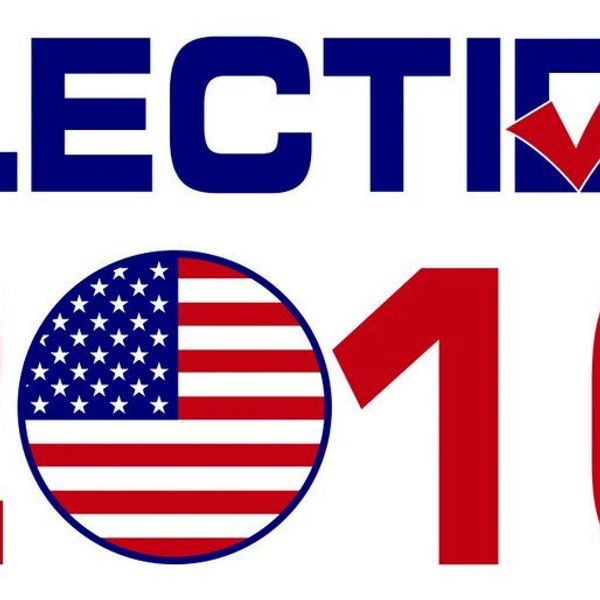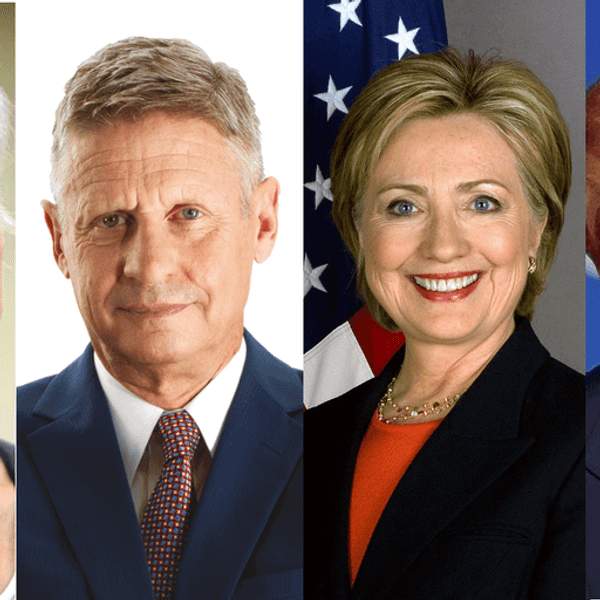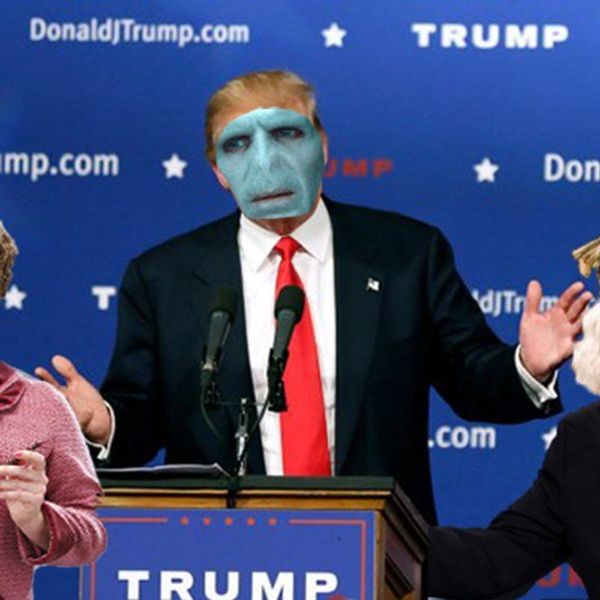Within the comments sections of news stories announcing Hillary Clinton as the presumptive nominee of the Democratic Party, many supporters of Bernie Sanders are muttering a new name to get behind. Their new candidate is the Green Party's Jill Stein, and those progressives who refuse to support Hillary Clinton have mentioned her as an alternative for months. Stein hasn't been blind to this, either, and she recognizes that the progress that Senator Sanders made this year in upsetting the balance of two-party politics may be utilized to raise her own presidential ambitions to the next level. The quandary, however, is that the next level for Stein's campaign is to pass a threshold of one percent of the vote in November after receiving a total of 0.36 percent when she ran four years ago.
If two truths can be derived from the 2016 election, they are that someone will be elected president in November and that person will not be Jill Stein. Jill Stein suggests that there are not many differences between Bernie's campaign and hers. Ideologically, she may be correct, but in practice, Bernie's candidacy is fundamentally different, both in his strategy to reform the system within the system, and in his potential to actually succeed by doing so. Stein has criticized Senator Sanders for his participation with the Democrats, but any progress made by the Green Party in their twenty years of electoral history has been dwarfed by just one year of Bernie's primary challenge against an establishment-favored frontrunner.
In fact, just last week in only five state primaries, Bernie Sanders' accumulation of votes more than quadrupled Jill Stein's results from the entire 2012 general election, despite the fact that he only acquired less than 43 percent of the vote from these contests. Furthermore, Bernie's popular vote total from the entire nomination, which excludes his advantageous caucus states, exceeds 12 million voters. Not only is this figure over 26 times greater than Stein's 469,627 supporters four years ago, it almost triples the number of total votes obtained by the Green Party in their two decades of presidential politics.
Jill Stein claims that voting for the Democratic ticket does not prevent what we fear from the Republican Party, but even if she were correct, Stein fails to acknowledge that voting Green does not prevent the realization of these fears either. Ralph Nader is currently the most successful candidate that the Green Party has produced. He's also the first and no subsequent Green nominee has managed to match his vote totals in the 16 years since, despite an expanding electorate. After receiving the votes of 685,000 individuals in the 1996 presidential campaign, Ralph Nader ran again four years later, capturing almost three million votes that comprised 2.74 percent of the turnout for the 2000 presidential election.
This election was unique because it marked the first time in over 100 years that the winner of the popular vote did not win in the Electoral College. Instead, Al Gore found himself four electoral votes shy of winning the presidency, and had he won New Hampshire, which has trended toward Democrats since the 1990s, he would have become president. Instead, George W. Bush defeated him by only 7,211 votes. If just a third of Nader's supporters in New Hampshire voted pragmatically for Al Gore in 2000, he would have been president. The primary controversy, however, is , of course, Florida, where George W. Bush was victorious by a matter of 537 votes. That's a margin of 0.009 percent for all 25 of Florida's electoral votes, and Al Gore only needed four of them. This is a state where Ralph Nader acquired 97,488 votes. If 0.6 percent of them decided to vote for the "lesser of two evils," George W. Bush would have never become president.
The 2000 presidential election is the singular instance where the Green Party managed to hold any significance in regard to the outcome of the race, and this significance was limited to the election of a man considered by many to be the worst president in modern history. Voting for Ralph Nader 16 years ago did not prevent the Iraq War, it ensured it. The arguments could very well be made that the United States must move past the two-party structure of our government, but the fallacy of the Green Party is that while they vocally acknowledge that these elections are designed for third parties to be unsuccessful, they wastefully exhaust their resources toward them regardless, with no positive effect or hint of progress.
Few would deny the assertion that Hillary Clinton has imperfections, but the attempt to equate her to the level of Donald Trump, or even postulate that she is somehow worse, is completely absurd from the perspective of a Progressive. It is true that much of her foreign policy is dangerously close and sometimes seemingly identical to Neo-conservatism, but what we know of Donald Trump's foreign policy is that he would be the first president to come into office with better relations with the authoritarian leaders of North Korea and Russia than the Prime Minister of our closest ally, and his only proposals toward addressing ISIL are grossly obvious war crimes. It is true that Hillary Clinton has supported measures that were harmful toward marginalized communities, but while Donald Trump mocks and degrades Latinos, the black community, Muslims, and others, Hillary Clinton acknowledges that discrimination exists, and must be addressed.
In 2015, Barack Obama made history when he addressed the issues of the Trans community in his State of the Union. Now Obama's presidency is the first Trans friendly administration in our nation's history, and is currently committed to fighting the discriminatory actions against Trans individuals not just in North Carolina, but in every school across the country. With Hillary Clinton, we can expand upon that and move forward, whereas Donald Trump's focus will rest on ensuring that Latinos and Muslims are viewed as second-class Americans. When listening to Donald Trump speak, and witnessing how he treats other people, the notion by some progressives that Hillary is anywhere near his level is only indicative that over two decades of baseless partisan attacks against the Clinton's are finally coming to fruition.
Finally, the vacancy on the Supreme Court is absolutely significant. The Supreme Court is both the most effective branch of government toward ensuring the rights of the oppressed, as well as the single most potent barrier toward campaign finance reform, a central issue to both the Sanders campaign and the Green Party. Every measure produced to undermine the influence of money on our elections has been gutted or thrown out by the Court. We are in a situation with four justices appointed by conservative presidents, and four others appointed by liberal presidents, with one vacancy. This is likely the only opportunity that progressives will have for decades to adjust the disposition of the highest court in the land. While Super Pacs were advantageous to Hillary Clinton during the Democratic Primary, the effect of Citizens United is a significant obstacle for Democrats in general elections, therefore, the election of a Democrat to the White House is presently the only viable option toward overturning Citizens United.
The Green Party and Bernie Sanders both have a point. There are fundamental issues concerning the structure of our government and our elections that hinder us from progressing as far as we can, and the Democratic Party in its current form is not adapted toward addressing these weaknesses. However, it seems equally true that the only feasible method of changing the system must be within the system. Bernie Sanders is an insurgent. He invaded and infiltrated the Democratic Party, and as a result, he has become a prominent force despite his loss.
In one year, Sanders exposed a strong progressive voice within our country that the Democrats would be unwise to ignore. His failure to secure the nomination will still likely alter the direction of the party. Jill Stein is offering herself as a doomed compensation prize for deflated Bernie Sanders supporters, and she will likely acquire many of their votes. She'll probably do better than her 0.36 percent result from four years ago, and perhaps may even eclipse Ralph Nader's total from 2000. Perhaps, she'll even secure a Trump presidency, while possessing no capability of ensuring her own. But the absolutely essential footnote toward any increase in the Green Party's success this year is not reflective of any merits of their organization's strategy, but rather due to playing opportunists toward the lasting impact of the Sanders campaign.





















